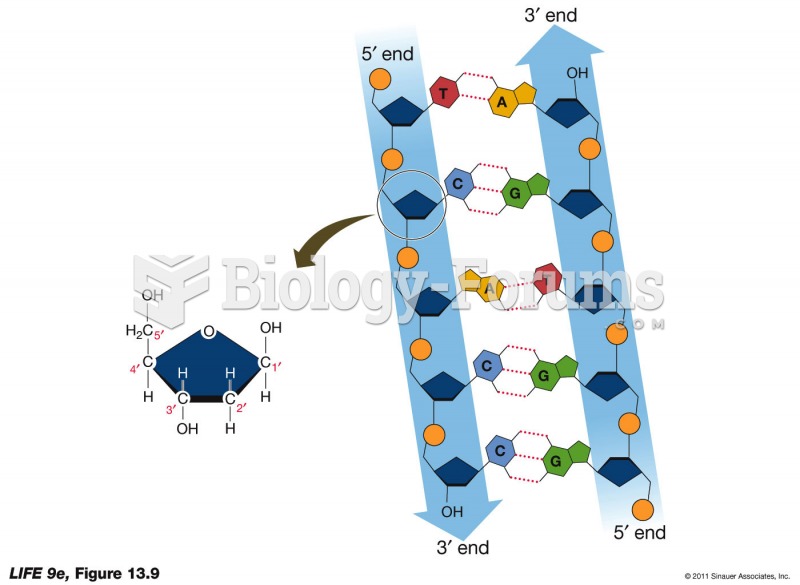|
|
|
Recent studies have shown that the number of medication errors increases in relation to the number of orders that are verified per pharmacist, per work shift.
Most fungi that pathogenically affect humans live in soil. If a person is not healthy, has an open wound, or is immunocompromised, a fungal infection can be very aggressive.
Warfarin was developed as a consequence of the study of a strange bleeding disorder that suddenly occurred in cattle on the northern prairies of the United States in the early 1900s.
Nearly 31 million adults in America have a total cholesterol level that is more than 240 mg per dL.
Before a vaccine is licensed in the USA, the Food and Drug Administration (FDA) reviews it for safety and effectiveness. The CDC then reviews all studies again, as well as the American Academy of Pediatrics and the American Academy of Family Physicians. Every lot of vaccine is tested before administration to the public, and the FDA regularly inspects vaccine manufacturers' facilities.
 Number of positive, negative, and neutral images recalled by younger, middle-age, and older adults. ...
Number of positive, negative, and neutral images recalled by younger, middle-age, and older adults. ...
 The relationship between the crankshaft position (CKP) sensor and the camshaft position (CMP) sensor ...
The relationship between the crankshaft position (CKP) sensor and the camshaft position (CMP) sensor ...





